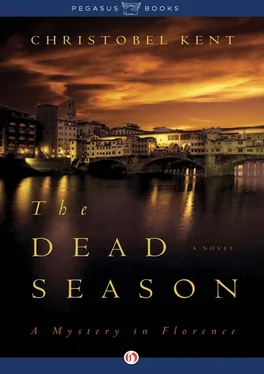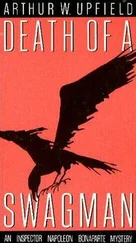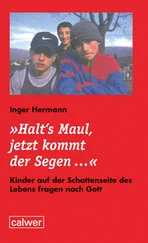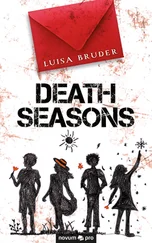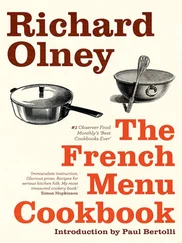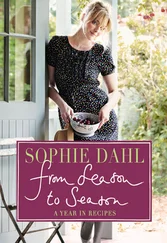Christobel Kent - Dead Season
Здесь есть возможность читать онлайн «Christobel Kent - Dead Season» весь текст электронной книги совершенно бесплатно (целиком полную версию без сокращений). В некоторых случаях можно слушать аудио, скачать через торрент в формате fb2 и присутствует краткое содержание. Год выпуска: 2012, Издательство: Corvus, Жанр: Криминальный детектив, на английском языке. Описание произведения, (предисловие) а так же отзывы посетителей доступны на портале библиотеки ЛибКат.
- Название:Dead Season
- Автор:
- Издательство:Corvus
- Жанр:
- Год:2012
- ISBN:нет данных
- Рейтинг книги:5 / 5. Голосов: 1
-
Избранное:Добавить в избранное
- Отзывы:
-
Ваша оценка:
- 100
- 1
- 2
- 3
- 4
- 5
Dead Season: краткое содержание, описание и аннотация
Предлагаем к чтению аннотацию, описание, краткое содержание или предисловие (зависит от того, что написал сам автор книги «Dead Season»). Если вы не нашли необходимую информацию о книге — напишите в комментариях, мы постараемся отыскать её.
Dead Season — читать онлайн бесплатно полную книгу (весь текст) целиком
Ниже представлен текст книги, разбитый по страницам. Система сохранения места последней прочитанной страницы, позволяет с удобством читать онлайн бесплатно книгу «Dead Season», без необходимости каждый раз заново искать на чём Вы остановились. Поставьте закладку, и сможете в любой момент перейти на страницу, на которой закончили чтение.
Интервал:
Закладка:
Some attention: well, that had certainly been true. The roof had collapsed in places, and the speckled tile of the floor was heaped with rubble. The window frames were rotten and the shutter-slats half broken; the tiny bathroom blotched with rust and mildew, the kitchen no more than an ancient cooker and a stained sink in one corner of the main living space. But the room was wide and light and spacious and beautiful, with chestnut beams; one set of long French doors let in a rectangle of green hillside, and another a slice of the view, between rooftops, of the smoke-blue layers of the Casentino hills.
‘Perhaps you could leave us for ten minutes, to have a look around?’ Luisa had said politely to Galeotti, who had appeared unsettled by the request.
‘Well, I don’t know,’ he’d said, chinking the big hoop of keys against his thigh.
‘Please,’ Luisa had said, and there was something about her tone — Sandro knew it all too well — of precision and firmness and certainty, which demanded compliance.
‘I’ll be downstairs,’ the estate agent had said shortly. Ten minutes.’
‘I don’t like him,’ Sandro had said, listening to the man’s footsteps on the stairs.
‘I think he can tell,’ Luisa had said, smiling. The pale soft skin around her dark eyes had crinkled and Sandro had found himself wondering why anyone would want to erase such lines. ‘I could never work out how you managed to be such a good policeman,’ she’d said, hands on hips. ‘You’re so bad at pretending.’ He had laughed abruptly: wasn’t that just like Luisa? Hide a compliment in an insult. Or vice versa.
‘Yes,’ he’d agreed. ‘Do you like him, then?’
And she’d laughed out loud.
A little trace of a breeze had set up, drifting through the long window nearest to them that gave on to the hillside, and it brought with it the smell of hot, dry earth and pine needles. It hadn’t rained in five months.
‘You love it, don’t you?’ Luisa had said, and Sandro had nodded, just barely.
‘Why did you bring me here, Luisa?’ he’d said with a sigh, turning slowly on the spot, taking in the scratched floor tiles, the long streak of reddish-brown stain down one corner, the lovely windows one after another. ‘We can’t afford it.’
‘Come here,’ she’d said, and dutifully Sandro had followed his wife. Ahead of him her wide shoulders — finer than they’d been before the chemo, her collarbones pronounced now, but still strong — made him think of Anna Niescu’s tiny frame, struggling with its burden. Had her fiance brought her to a place like this and said, Imagine, darling? This is where we’ll put the nursery .
‘We’re too old,’ he’d begun, but Luisa’s sharp backwards glance had silenced him. She had then taken him into the only other real room in the apartment, the one bedroom. It was big, too, twice the size of anything you’d find in a modernized place. A square, handsome room, with two windows looking down into the nested houses, ornamented with window boxes and washing hung out to dry, that clustered around the old wall.
By now the sun had disappeared behind the dark hump of hillside to the west, but the sky had remained livid blue, and clear. Luisa had been leaning on the windowsill, silhouetted as she gazed out. The hot wind had blown in past her, carrying her scent inside with its load of humidity. She’d turned.
‘Do you think I want this for me?’ she’d said softly. ‘Just for me? Do you think I don’t hear you, lying awake, grinding your teeth every time someone smashes a bottle in the street? Pacing the flat at night as if you’re in a cage?’
Sandro, suddenly overwhelmed by his own stupidity, had said nothing.
‘Too old? No,’ Luisa had said. ‘Life is too short. You need to make changes, now and again. Not too often, but Sandro, caro , once or twice in a lifetime? Is that too often?’
He’d nodded, mute with shame. ‘I thought you loved Santa Croce,’ he’d mumbled.
‘I made the best of things,’ she’d said, shrugging. ‘We both did. But we don’t necessarily have to do that forever.’ She’d sighed. ‘Yes,’ she’d said. ‘I don’t think it was a bad place. But I like this one much more.’
There was a sound from below, of someone slipping on the crumbling steps, and a muffled curse. And then the agent was with them in the bedroom, examining the dust on his shoes with disgust. ‘Seen enough?’ he asked brightly, key in hand. ‘Ready to go? Sorry to rush you, but there’s another viewing in ten minutes.’
‘Another viewing?’ Luisa said with dismay, and the man shrugged.
‘It’s a good area,’ he said. ‘Places like this don’t hang around.’
One of the windows hung at a crazy angle, and Galeotti, trying to open it, had pulled a rusting hinge out of the wall. ‘Needs some attention,’ Sandro had said drily and the man had looked back at him with a trace of sullenness before putting the professional smile back on his face and leaving the rotten window to dangle against the wall.
Now settled in at Nello for a late dinner, they talked around in circles. Could they afford it, how much would they get for the place in Santa Croce, who might they get to do the work? Pietro knew a mason, and there was a good place in Santo Spirito for the windows. Every time Sandro felt excitement bubble up inside him he fought to suppress it — partly because it was his nature, partly because it was only sensible, wasn’t it? Because nothing was certain. So dangerous, to make plans: disappointment was the default position in life. But Sandro found himself agreeing to go into the bank, to talk about a loan. He pushed away his plate, the breaded cutlet on it not quite finished. This heat, it had taken away his appetite, too.
‘There was a girl came in today,’ he said slowly. Talking of plans.
And he was suddenly overcome by the desire for a cigarette, after twenty years without one. But now smoking was banned more or less anywhere but most particularly in the place where it would have been most perfectly enjoyable, in a convivial restaurant after a good meal. Since when, he asked himself, did we become so intolerant? Since when did we start refusing to take even the tiniest risk for another’s pleasure? Of course, smoking terraces had sprung up all over the city since the new law, most of them so fully enclosed that effectively people were still smoking inside. But that was the Italian way: keep your head down under authority’s demands and then carry on as before.
Fleetingly he wondered: perhaps taking up smoking again would be a change too far even for Luisa.
‘A girl?’ said Luisa, her curiosity caught by whatever it was he had allowed to slip into his voice. Reluctance, regret.
And for the second time that day Sandro laid out Anna Niescu’s story, but the version of it he found himself telling Luisa was different in several particulars, some of it new even to Sandro himself. He talked of the sweetness of the girl’s nature, of her conviction that the man needed only to be brought back to her for a happy ending to ensue, her faith. And he even found himself telling Luisa, wonderingly, what he would not have dared describe to her even five years ago: of the moment when he and Anna Niescu had both looked down at the child moving inside her, immanent; untainted perfection waiting to be born.
‘It seems like waiting for someone to die,’ he said, without even thinking if what he was saying made sense. ‘Waiting for a child to be born. You can’t — anticipate. You can’t know what it’s going to be like, until it’s there.’
Too late, he heard what he had said. They had waited for their child to die. But Luisa closed her hand over his. ‘You’ll have to find him, then,’ she said. ‘The father. If anyone can, you can.’
Читать дальшеИнтервал:
Закладка:
Похожие книги на «Dead Season»
Представляем Вашему вниманию похожие книги на «Dead Season» списком для выбора. Мы отобрали схожую по названию и смыслу литературу в надежде предоставить читателям больше вариантов отыскать новые, интересные, ещё непрочитанные произведения.
Обсуждение, отзывы о книге «Dead Season» и просто собственные мнения читателей. Оставьте ваши комментарии, напишите, что Вы думаете о произведении, его смысле или главных героях. Укажите что конкретно понравилось, а что нет, и почему Вы так считаете.
